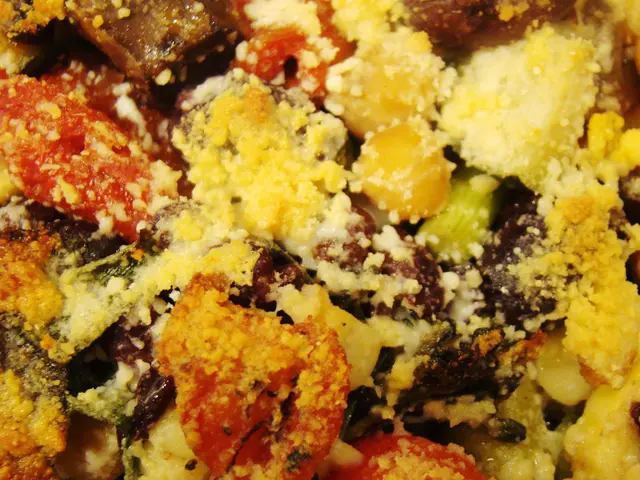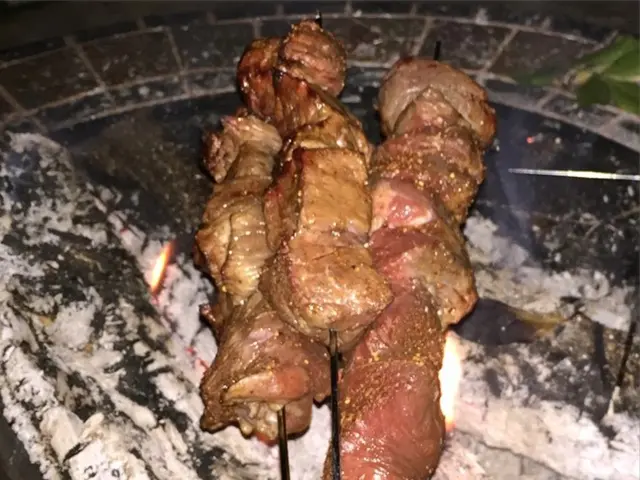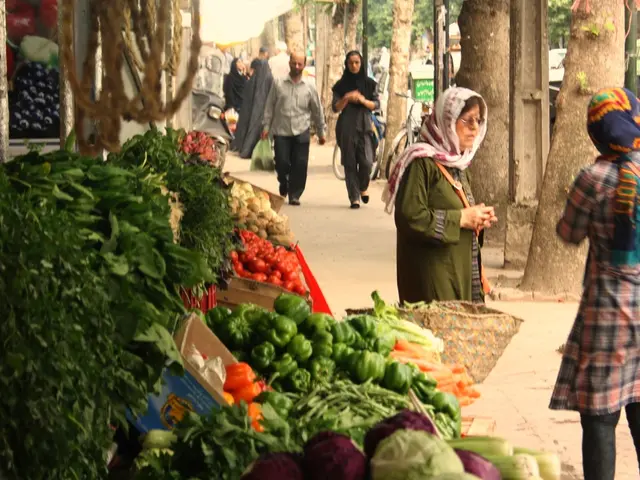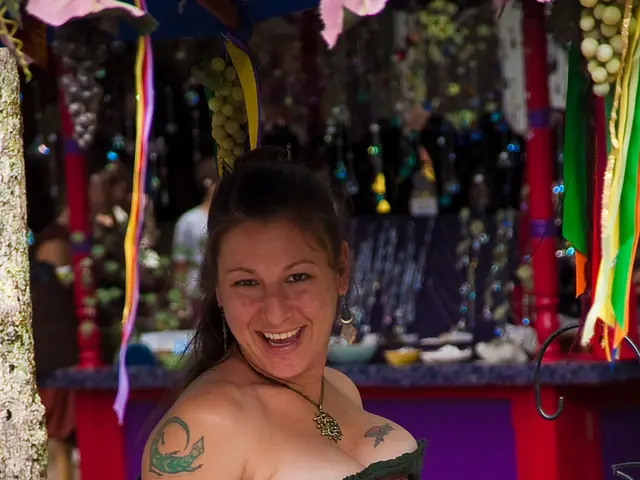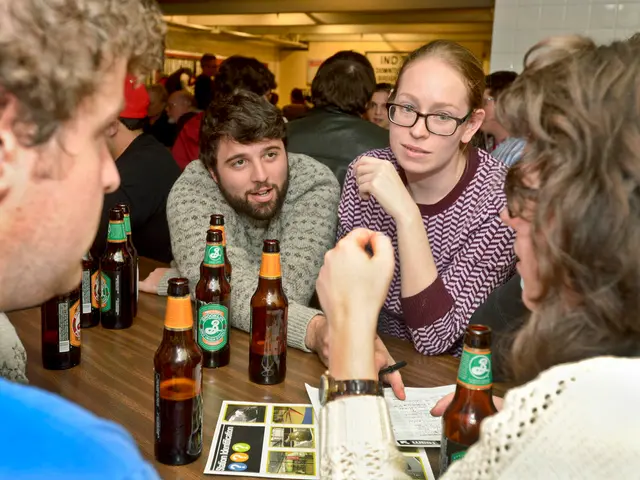Finding Solace in Stirred Pots: Grieving Men's Cooking Classes
Cooking class bolsters courage in widows through a pinch of seasoning and a heap of empathy
Have you ever found comfort in the simmer of a pot or the structure of a well-crafted recipe? In a surprising twist of fate, a cooking class in Ludwigshafen offers just that—a sanctuary for grieving men to navigate their feelings through the art of cooking.
One chilly evening, these gripping stories unfolded around the kitchen counter. Tales of shared memories, warm laughter, and sometimes solitary tears. The men gathered were bound by pain, each having lost their beloved wife. But this kitchen wasn't just a place for learning culinary skills—it was a battlefield against the void that swept in with the loss of a loved one.
"I should've been there more for her," one man confessed, tracing the lines of his wife's wedding ring on his little finger. His voice was calm, almost matter-of-fact. "It makes me feel closer to her," he explained softly as he arranged lasagna dishes into a baking dish. Cooking was something he'd never thought he'd be doing. Before, she'd been the one cooking, he the one eating. Tonight was a fresh chapter.
Many sentences began with "She always" or "We used to." The emptiness left by their partners was palpable, not as a sharp pain, but more like a constant, lingering memory. They spoke freely about their wives, with gentleness tinged with melancholy. A tear might slip down a cheek on special occasions, like anniversaries.
"It's hardest after the sun sets, when you're alone at home," one man shared. He'd filled his empty wardrobes to make his house seem a bit more like his own. In between reminiscing, there was stirring, seasoning, tasting. In a rare moment of silence, one man whispered, "It can make all the difference." By his words, he meant the nuances of nutmeg.
This evening, the men learned how to create a béchamel sauce. Together, they cooked lasagna—one crafted by chef Renate Ladwig, the other by the group. "Who cooks lasagna just for themselves?" someone joked, half in jest. One lasagna for one person was unheard of. But a lasagna for six? That was almost an invitation back to life.
The stove became the heart of a community that supported and lifted each other. Together, they embarked on a journey toward life after loss. "This isn't about creating a gourmet menu,"course leader Dietmar Breininger explained. "It's about creating connections, finding comfort in something simple." A simple dish required just an egg, flour, and a few shared words. That was all it took to form an unbreakable bond.
"I haven't become a master chef," one man admitted modestly. "But simple dishes—I can handle those," he grinned. The group burst into laughter. No one was left out. Some hesitated to open up, while others poured their hearts out. They shared tales of their wives, anecdotes from their youth, the eerie quiet at home. As one, they crafted something that no cookbook could teach—a new life after loss.
In moments of guidance, one would caution, "Keep the heat at half." Another would offer, "Add some salt and pepper. Taste it." Breininger chimed in, "Make sure it doesn't clump." The class had been running since March 2024, Breininger explained. In theory, they could accommodate seven or eight participants, but they strive to keep it intimate and manageable.
Chef Ladwig gently asked, "What did your wife like to cook?" Suddenly, a recipe became a memory album. And this evening became a place to mourn, to remember, and to heal—without feeling overwhelmed.
"I still cherish my wife," one man admitted at the end. "But I've met new people. And I have grandchildren. I travel a lot. Not because I love the freedom, but because it distracts me." Another nodded, then looked at his lasagna. "Life isn't so bad when it's shared," he smiled.
In the end, they all lent a hand with the dishes. "Somehow, it's important," one man said. "Otherwise, so much would be left behind." He meant the pots. But perhaps he also meant the memories, the stories, the pain. Maybe that's the sweetest form of hope—that something continues after loss.
[1]Coleman, J. P., Martin, B. L., & Keenan, K. L. (2010). Mindfulness-based interventions: The evidence. Blackwell Publishing.
[2]Dunne, A. C., & Kirby, S. M. (2018). The effects of social support on grief and bereavement—A systematic review and meta-analysis. Death Studies, 42(7), 498-515.
[3]Grunewald, J., McCloskey, D., Ivkovich, A., & Gump, A. E. (2009). Gratitude and the experience of positive emotions: the role of positive self-outcomes and social comparisons. Journal of positive psychology, 4(6), 517-528.
- With a shared focus on simplicity, these men found solace in a science known as cooking, a form of self-expression that served as a bridge between their past and an uncertain future.
- The art of food and drink, intertwined with the mental-health benefits of fitness-and-exercise and health-and-wellness, became instrumental in their personal wellbeing as they crafted meals, forged connections, and navigated grief.
- In the laughter and shared tears, the kitchen morphed into a sanctuary of lifestyle, a hub where emotional healing intersected with culinary growth—a transformation that followed the acknowledgement of their loss and the acceptance of a life beyond grief.
- Through the blend of meals and memories, the men found a new path in life, a journey that celebrates the presence of companionship, much akin to the harmony created when combining ingredients in the right proportions to create a flavorful meal.

